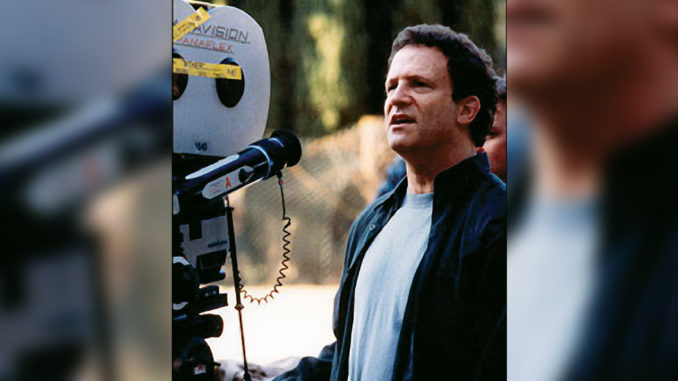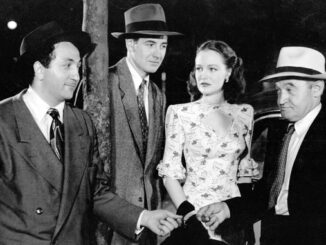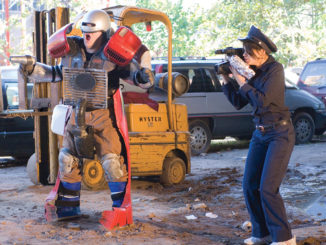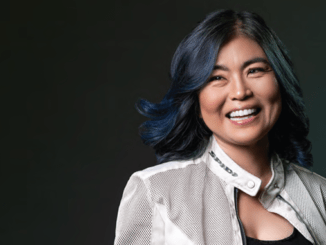
by Angela Barton
Ask a comedian, “Who makes you laugh?” and the answer will often be “Albert Brooks.” As a writer and director, his films are eagerly awaited, and many achieve cult status. Modern Romance (1981) stars Brooks as a film editor. It’s sort of an unintentional tribute to the old days of editing––before the digital world and before directors could “view videocassettes…and want to make changes every night,” one of Brooks’ funniest lines in the movie.
CineMontage asked him about his upcoming feature, Looking for Comedy in the Muslim World, as well as his involvement in the editing process and his working relationship with editor Anita Brandt Burgoyne.
CineMontage: How did you come up with the idea for your new film?
Albert Brooks: I’ve been thinking about what’s going on on our planet for a couple of years now and trying in a small way to see if I could inject some laughter into a subject that is weighing on everybody’s mind all the time. So I tried to come up with something that could hopefully make all kinds of people––from Americans to Muslims to Christians to Jews––just sort of laugh a little bit at something they’ve been terribly scared about.
CM: How is it different from your other films?
AB: I went to India and filmed it there. I’d never gone that far to make a movie; I’ve pretty much made all my other movies in Los Angeles. I’m also doing something that I haven’t done since my very first movie, Real Life [1979], which is that the character I’m playing is called Albert Brooks. That movie was done a long time ago, the first of what you might call “mockumentaries.” I’m playing that character again, which gives an interesting reality to the film. Even though the character I play when I use my own name is different than myself, it still makes the film feel more immediate.
CM: Do you enjoy the editing process?
AB: Yes, it’s almost the best part of the filmmaking process because it means you’re done with the filming. The editing process is equivalent to writing. You can write, you can rewrite, you can create things. You take all of the colors that you’ve put into the camera and can start to blend them. It’s immensely creative and it’s also solitary, which I happen to enjoy. And the other aspects of moviemaking––like getting the financing and releasing the movie and doing the casting and making sure that everyone is happy––those are gone. So it’s peaceful and creative.
“There’s a thousand movies where people play writers, but I’d never seen one about a film editor and I thought it was just fascinating.” – Albert Brooks
CM: Some people describe the relationship between a director and editor as like a marriage; how would you describe it?
AB: It’s a close working relationship. You spend an immense amount of time with the editor. You really need to like that person and respect them, and they need to feel that way about you. In a good marriage, the husband and wife respect each other and like spending time together. You need that; that’s important. You can imagine if it weren’t like that…day after day after day would be a nightmare.
CM: Can you share anything specific about your working relationship with Anita?
AB: I’ve enjoyed it. I think she’s not only smart, she’s really good at operating the Avid. For example, I like to play with sound a lot. I will move words and shift them into another part of the scene or replace a word or make an inflection different. It’s part of what I hear in my head to make the comedy perfect.
And I was very impressed with Anita’s ability not just to understand what I’m talking about, but to do it quickly and sort of seamlessly. You have to trust somebody’s brain. You can be two frames off and you look at each other and go, “Something’s wrong.” Literally, two frames. Then you hit it and you both go, “That’s it!” It’s just like finding the bull’s eye when you’re cutting. She’s got a very good sense of timing, and she’s really amazing at that machine.
CM: In Modern Romance, you play an editor. It’s a famous film among editors, and lines like “I think you saved the picture” are often quoted in the cutting room. What did you think would be funny or interesting about making the main character an editor?
AB: I’d never seen an editor played in a picture before. I wanted the character to have a creative job, and there’s a thousand movies where people play writers––I’ve done that myself. You see many movies where directors are portrayed, movies about Hollywood with the producers and actors and all those, but I’d never seen one about a film editor and I thought it was just fascinating. Somebody who could make enough money to live in Laurel Canyon.
“The editing process is equivalent to writing. You can write, you can rewrite, you can create things. You take all of the colors that you’ve put into the camera and can start to blend them.” – Albert Brooks
CM: You never have extra or deleted scenes on your DVDs. Are there any?
AB: I never thought like that. I sort of always thought, “Watch the movie.” Because a movie’s like a magic trick. I was never somebody who wanted to reveal anything other than the movie. But I think with this film there’ll be some deleted scenes that I will definitely put on. I just never did it before.
CM: In your new film, you play yourself––Albert Brooks the comedian. In it, you say comedians don’t like to talk about other comedians and whether or not they’re funny. If it’s true, sorry for asking; but who really makes you laugh? Who were your favorites while you were growing up?
AB: My father was a radio comedian. He died when I was young, but it was a great influence having a father who was a comedian. Growing up, my biggest influence was probably Jack Benny––who also played himself but was the most brilliant comedian at being subtle. You can divide the world into people who like the Three Stooges and people who like Jack Benny. I was always someone who admired somebody who could get laughs by doing very little. And he was the greatest at that. Other than my father, he was my hero.
CM: Anything else you’d like to add?
AB: I think mattresses are priced too high.




